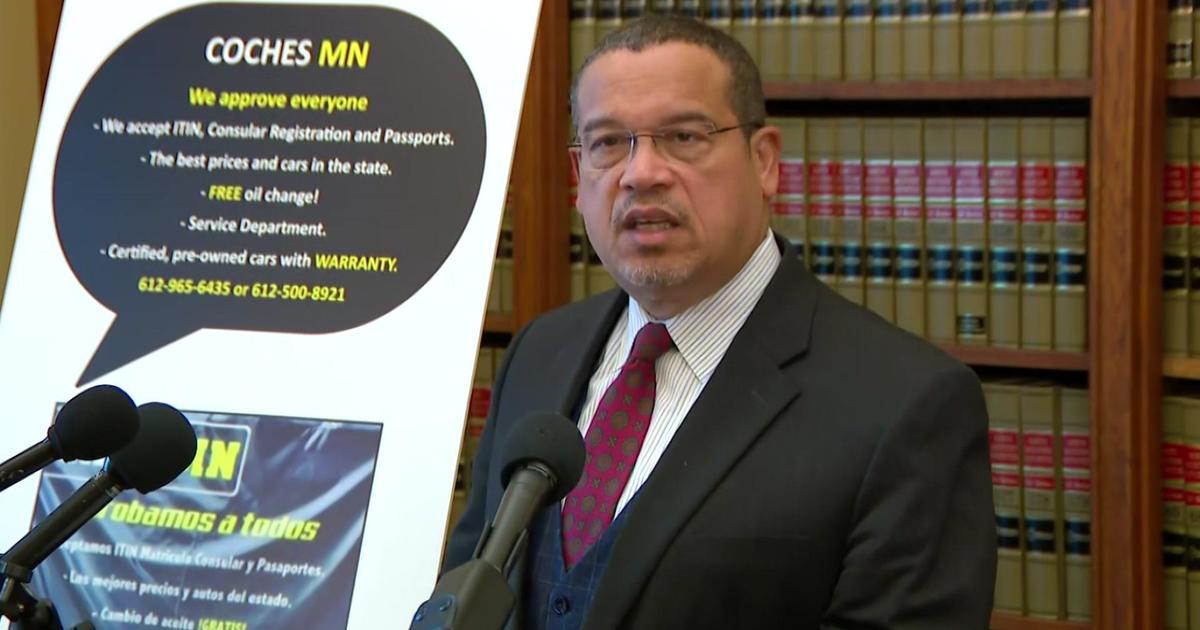For GOP And Dems, Elections Are A Geography Lesson
ST. PAUL, Minn. (AP) — Tuesday's election exposed electoral challenges for both Democrats and Republicans moving forward.
Democrats suffered all but one of their majority-costing statehouse losses in districts outside the Twin Cities and their suburbs. Republicans were shut out again in statewide races, primarily because they were unable to chip into huge Democratic margins in the urban core. To be successful in future campaigns, each party has to figure out how to negate the other's advantage.
Republicans last won statewide office in 2006, and since then Democrats have steadily grown their margins of victory in Minnesota's urban core while cutting down the GOP's edge in suburban counties, according to an Associated Press analysis of election results.
That's resulted in a 3-to-8 percentage point bump, if not more, on Election Day that has kept constitutional offices and U.S. Senate seats out of the GOP's reach.
Lots of factors decide elections — third parties that peel off votes, policy measures that succeed or backfire, candidates that don't inspire — and that makes it difficult to pinpoint a single solution to Republicans' urban voter problem.
Republican strategist Brian McClung, an adviser to former Gov. Tim Pawlenty, said his party's ability to compete in statewide races depends on regaining a stronger footing in suburban areas like Edina and Eden Prairie, where Democrats have gained in recent years. McClung said the party also has to attract more urban voters so Democrats won't run up lopsided margins that are tough for GOP candidates to overcome.
For example, Republican Jeff Johnson beat Gov. Mark Dayton in more than half of the state's 87 counties but trailed by 9 points in Minnesota's largest counties — including a whopping 25 points in massive Hennepin and Ramsey counties.
Compare that to Pawlenty's 2006 recipe for a second term — winning suburban counties handily while limiting his urban deficit to 12 points. Johnson barely won those suburban counties, but his heavy losses in the urban areas meant Dayton coasted to victory by 5.6 points.
At the same time, Republicans claimed the House majority with 72 wins.
But the new Republican House majority has more greater Minnesotan members than those from the suburbs, so the policy aims might not match up with the political goals.
"A lot of these greater Minnesota Republicans won because they tied their DFL opponents to votes they took that supported Minneapolis and St. Paul," McClung said. "Republicans do have to be cautious not to exacerbate the wide margins that DFLers win by in the core cities by just gratuitously taking shots at Minneapolis and St. Paul."
One dynamic to watch in the GOP House revolves around borrowing for construction projects. Greater Minnesota members have generally been more inclined to support bonding bills because of financing for projects vital to their areas. But as a party, Republicans stress fiscal restraint and have argued the state has too readily taken on debt for public works.
The same goes for local government aid, a prime GOP target for bringing down state spending when they were in charge before. It is lifeblood for many greater Minnesota communities and could be tough to scale back.
Democrats have their own struggles.
In Minnesota's top 10 farming counties, the Democratic-Farmer-Labor Party holds just three of 12 House seats after losing a handful of districts to Republicans Tuesday. Democrats also represent four state Senate seats, which weren't up for grabs Tuesday. All told, Republicans will occupy 13 of the 20 House and Senate seats in those counties.
Republicans argue their gains in greater Minnesota resulted from Capitol Democrats neglecting rural concerns. Speaker-elect Kurt Daudt needled Democrats this week for putting a Minneapolis Democrat atop the House's agricultural committee — and combining that panel with environmental issues.
Roger Moe, a Democratic former Senate majority leader from northwestern Minnesota, said that perception may have played a role in the party's losses. But the same could be said of rural Democrats' votes to legalize same-sex marriage or passing new taxes, among others, Moe said.
Rep. Paul Marquart, a veteran lawmaker from Dilworth, chalked up most of their losses to turnout woes outside the metro. But he said House Democrats should consider promoting a rural member into leadership to give the party a stronger voice on greater Minnesota.
"As a DFL party, we need to look at our brand and how it relates to rural Minnesota," said Marquart said. "You can't just whisk away the fact that we lost 10 seats in rural Minnesota."
While acknowledging his electoral difficulties in rural counties, Dayton said he hasn't forgotten needs in those places. He emphasized his advocacy for crucial water projects in southwestern Minnesota, response to severe flooding and efforts to address rail-car problems at harvest time. Despite having run his last race, Dayton said he'll focus part of his term reaching out to greater Minnesota.
"I'm not going to sit in St. Paul for four years," he said.
(© Copyright 2014 The Associated Press. All Rights Reserved. This material may not be published, broadcast, rewritten or redistributed.)



